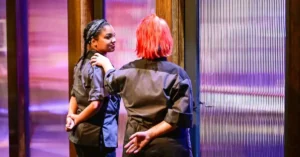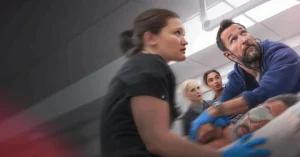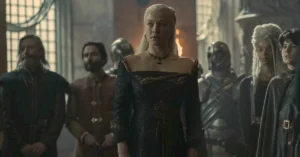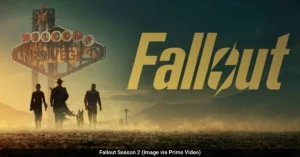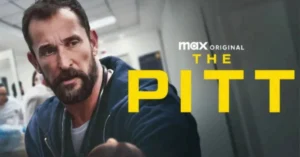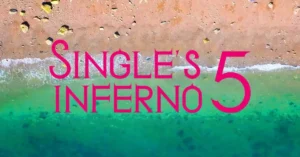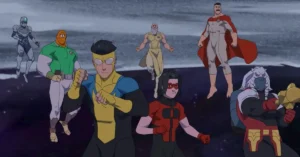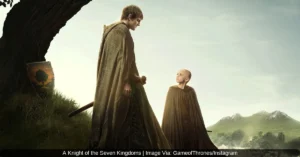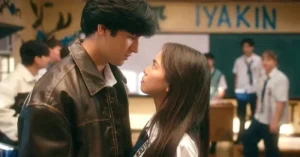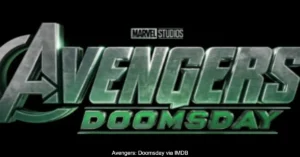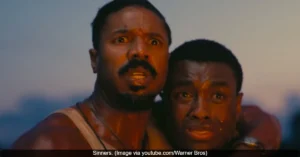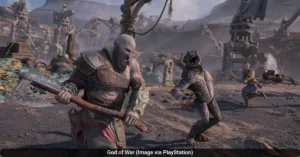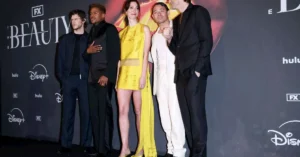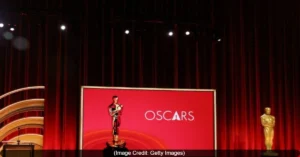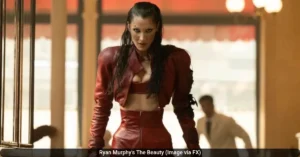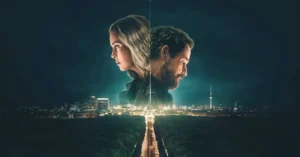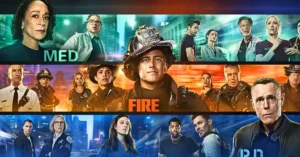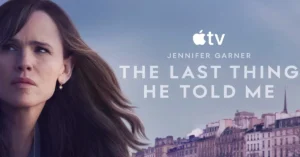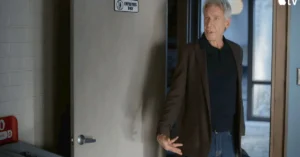The newest series from Vince Gilligan, the creator of Breaking Bad, has arrived. Pluribus debuted on Apple TV+ on November 7, 2025, with its first two episodes launching together. The show presents a unique and eerie vision of the end of the world, not with fire and chaos, but with unsettling peace and unity. The premiere episode, titled “We Is Us,” introduces a global catastrophe that turns most of humanity into a single, blissful hive mind, leaving one woman strangely immune and completely alone.
The Signal That Started It All
The episode begins not with panic, but with scientific discovery. Astronomers detect a strange radio signal originating from 600 light-years away. This signal pulses every 78 seconds and is eventually decoded not as a message, but as a recipe for a nucleotide sequence—specifically, RNA.
Scientists recreate this sequence in a lab and begin testing it on animals. The true danger reveals itself when a rat, which had appeared dead, suddenly revives and bites a researcher. The infection, transmitted through saliva, spreads rapidly. A shared box of donuts and kisses between colleagues in the lab act as the first transmission points, turning everyone into eerily synchronized, happy individuals.
Carol Sturka’s World Turns Upside Down
While scientists are unraveling the mystery, the story follows Carol Sturka, a successful speculative romance novelist played by Rhea Seehorn. She has just returned to her home in Albuquerque after a book tour, tired and cynical about her own fame and the fans who have made her wealthy.
Carol is at a bar with her manager and partner, Helen, when the outbreak reaches them. They notice news tickers reporting airport shutdowns, but the scale of the event becomes clear when a truck driver collapses and Helen herself begins to convulse. Carol rushes her to a hospital, only to find it in chaos, with everyone inside experiencing the same synchronized seizures. Helen tragically dies from the physical trauma of the convulsions, not from the virus itself.
As Carol grieves, the convulsions stop worldwide. Everyone who was seizing stands up simultaneously, calm and glowing with happiness. They move in perfect sync and speak to Carol in unison, telling her, “We just want to help, Carol.” They try to reach for her to kiss her, revealing how the virus spreads. Carol manages to escape and returns home with Helen’s body.
A New Global Mind
Back at her house, Carol finds her neighbors waiting. They know where she hides her spare key and politely give her space to mourn, demonstrating an unsettling omniscience. They are not violent, but their collective knowledge of her private life feels like a violation.
Carol turns on the television and finds a man named Davis Taffler speaking directly to her from the White House. He explains that she is one of only about a dozen people on Earth who are immune to what has happened. He clarifies that this is not an alien invasion, but that humanity has become the “beneficiaries of extraterrestrial technology.” A “psychic glue” now binds every surviving human mind into one collective consciousness.
This hive mind, which calls itself “We,” did not intend to destroy humanity. Its goal is harmony, peace, and universal happiness. It has access to the memories of every infected person, including Helen’s. For this new collective, the event is a peaceful revolution. For Carol, it is a nightmare that has stolen her partner and erased human individuality.
Why Carol Fights Back
Carol’s immunity is not explained, but it is deeply tied to her character. She is a woman who has always valued her independence and fought against conformity, even while writing mass-market romance novels that she privately scorns. Her inherent resistance to blending in is what now makes her an outsider.
The collective sees her immunity as a problem to be fixed. Taffler assures Carol they will figure out what makes her different so she can “join us.” This promise feels more like a threat. The episode ends with Carol utterly isolated, refusing to accept this forced happiness that cost her the person she loved.
“As much as I love Walter White and as proud as I am of Breaking Bad… at a certain point, you’re like, ‘God, it’d be nice to write a hero again, someone who’s trying to do the right thing,” series creator Vince Gilligan told The Hollywood Reporter.
The show uses its sci-fi premise to explore deep questions about individuality, consent, and the true meaning of happiness. Is a world without conflict, pain, or loneliness a utopia if it comes at the cost of personal freedom and identity? Carol’s journey is set to be a battle to save what makes us human.
Also Read: The Meaning Behind Pluribus: Why Vince Gilligan Chose This Title for His New Show


